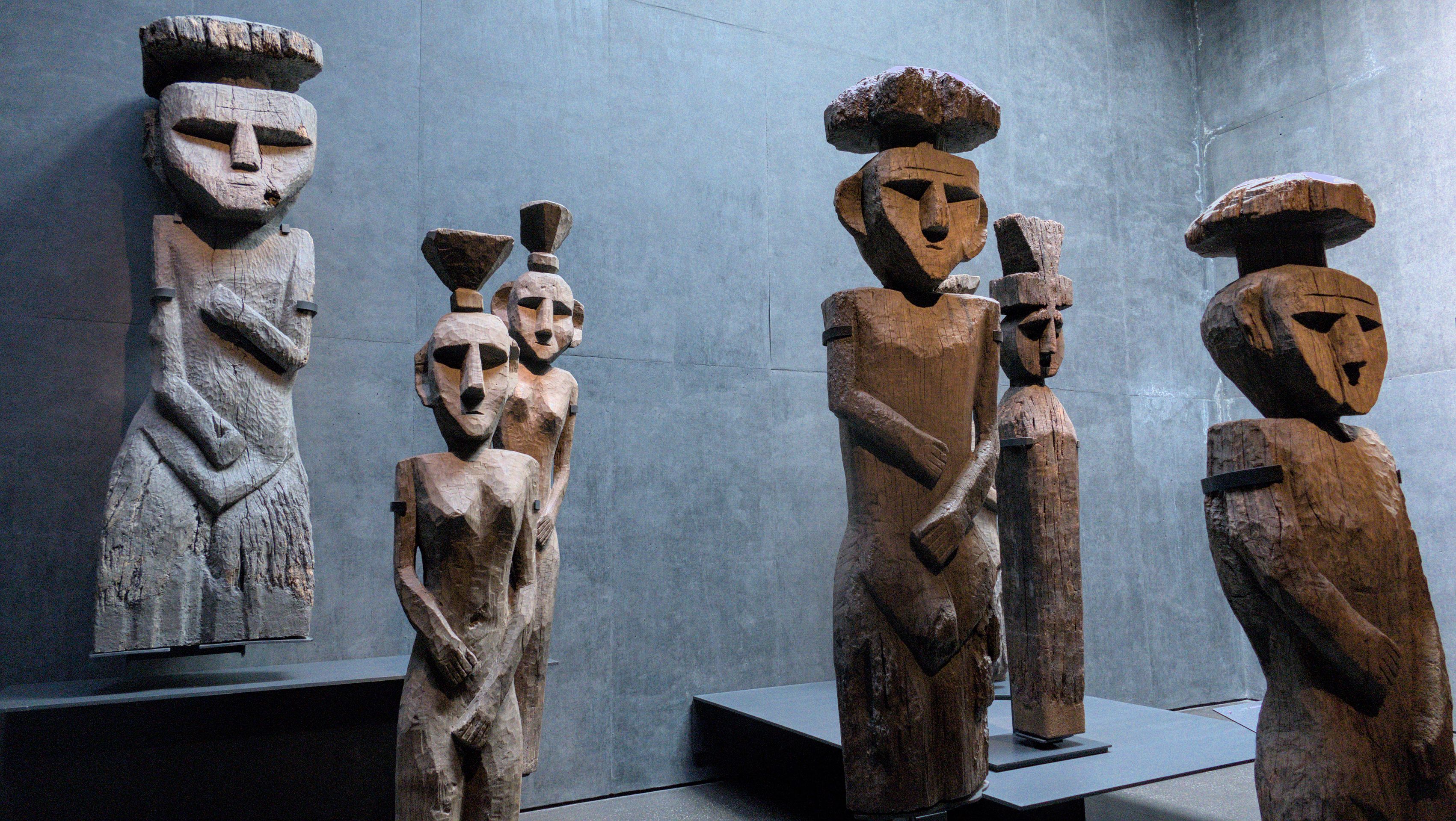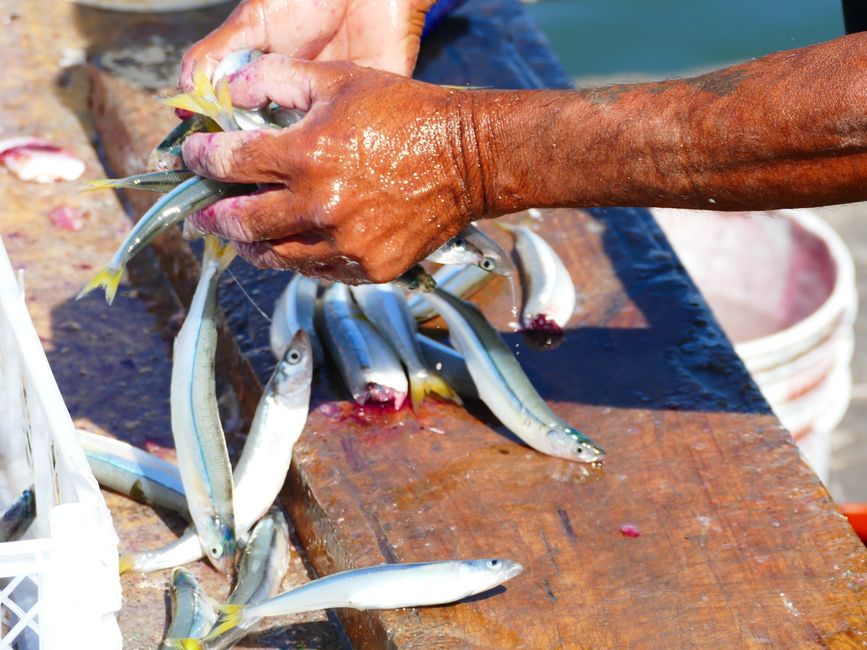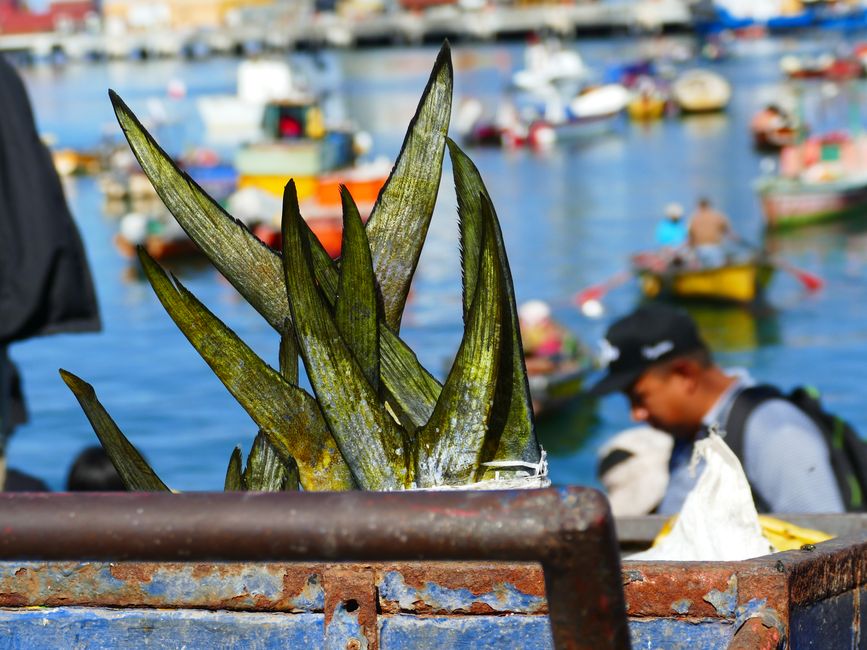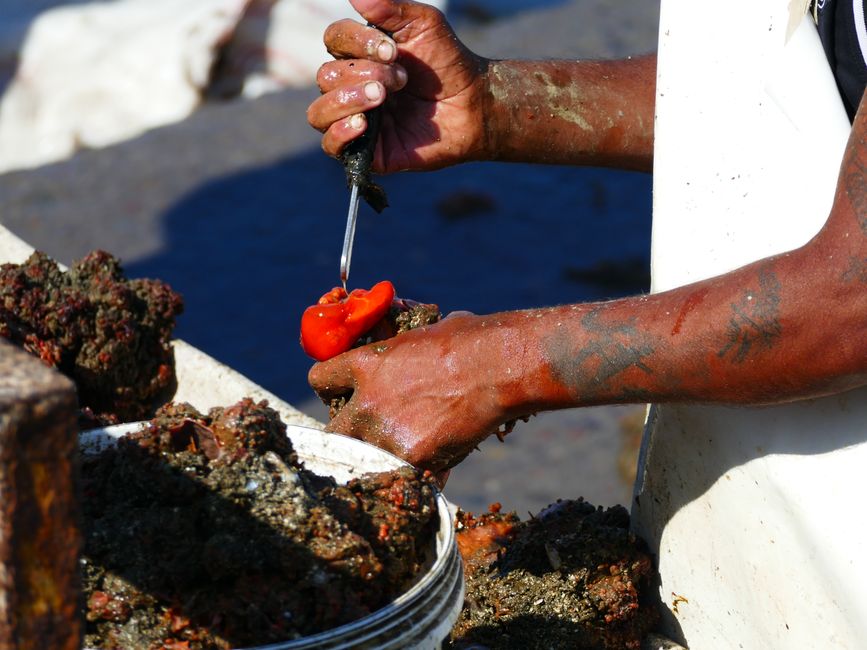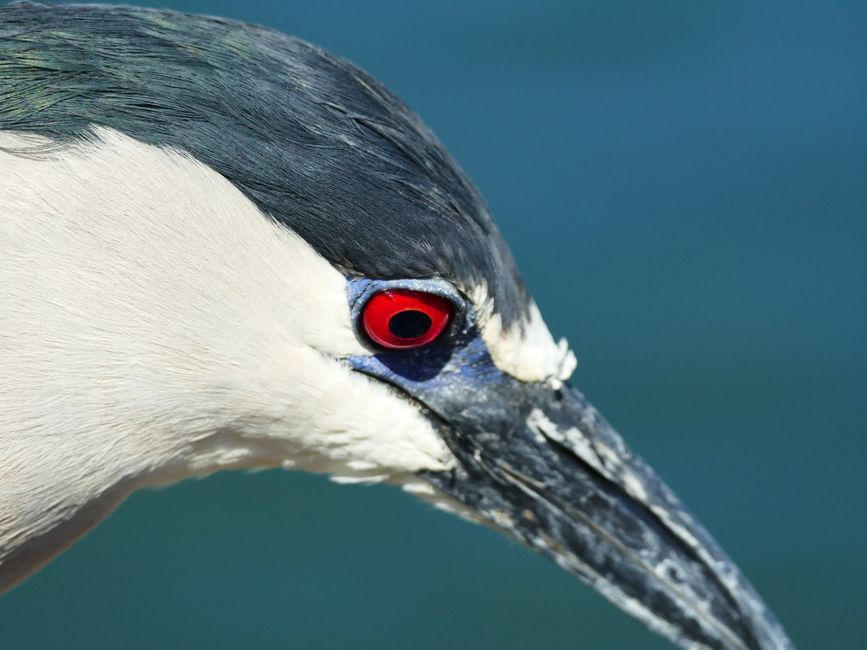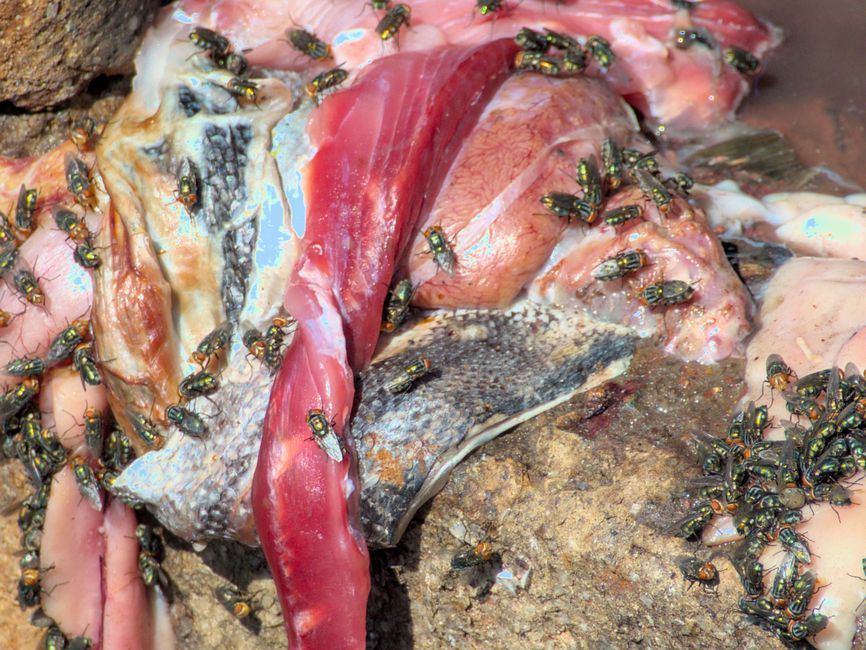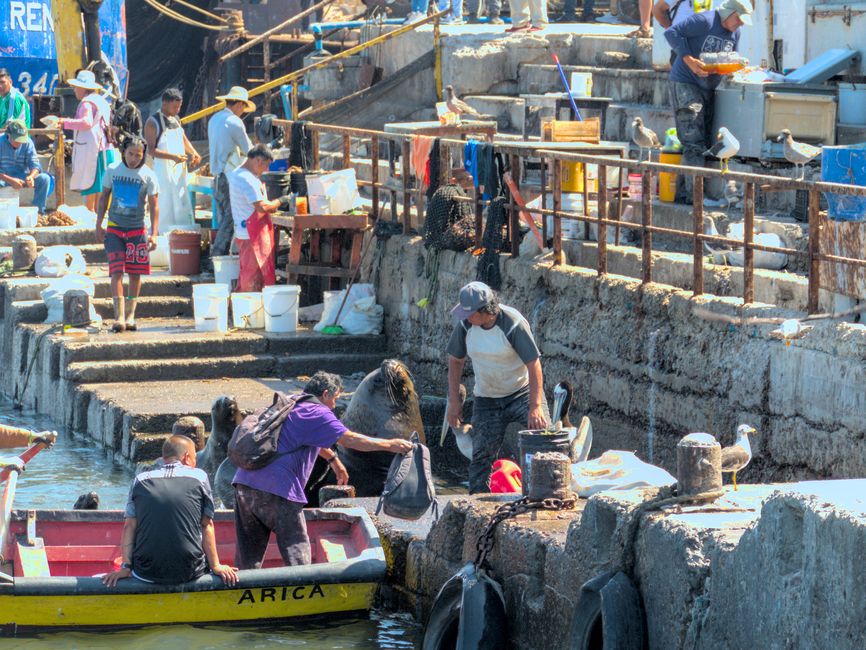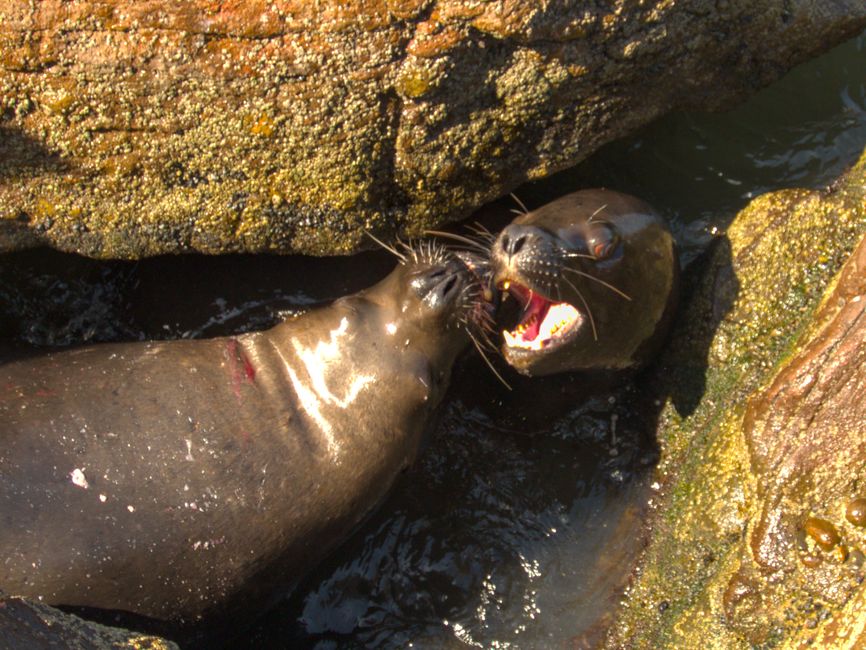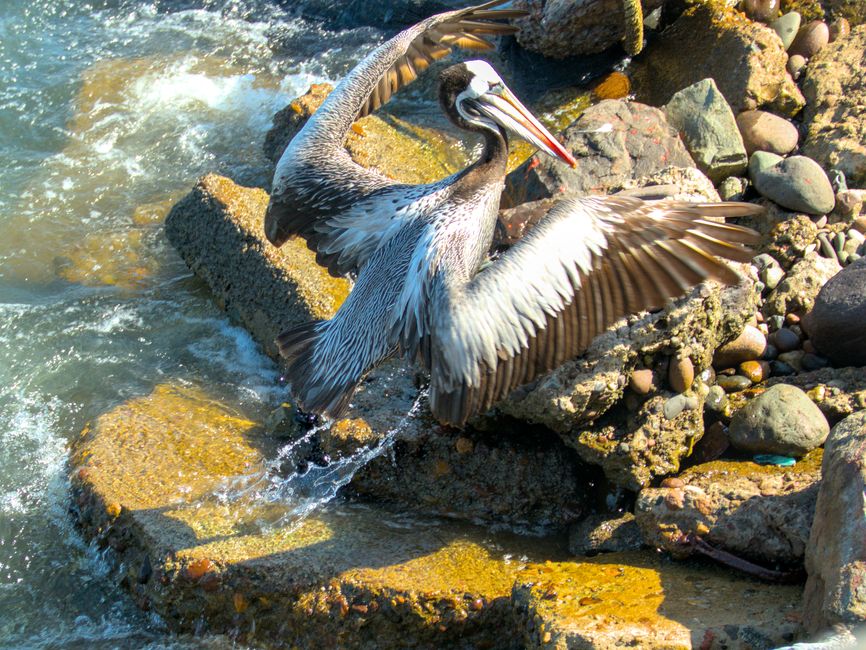A Jump
Közzétett: 16.01.2023
Feliratkozás a hírlevélre
It's 6pm and now the sun caresses the landscape instead of glaring down on it inquisitorially. Shades of brick red and violet emerge. Dull black and greenish anthracite shimmer side by side in the sunlight. The road eats its way down into the area, whose shape and color resemble a sandbox but is rocky upon closer inspection. It goes up sluggishly, brakes down well. From Arica to La Serena. From the sea lions to the penguins. Instead of traveling along the coast, we cross the desert and with each moment the landscape changes in color, shape, and depth. I think I'm already at sea level, but the earth rises to my right and left. Deep valleys, steep and smooth, reach into a valley of green. The place becomes something from nothing, because somewhere a spring feeds a trickle and the geometry of the green attests to agricultural activity.
In ochre and eggshell brown, a smooth polished mugel rises beside another, and the three lanes, one up, two down, form the solid black and yellow band on which we wind down. Then it goes up again and a breadth of flat nothingness stretches between gentle mountain ranges. From time to time we pass through places that are simply there and whose purpose, apart from being short stops, remains hidden from me. Telephone poles are the tallest structures and there are more trucks than houses. A tire repair shop is the last house, then it opens up again and the next point of interest, a place, is signposted in green.
Coming from Arica, because, as my travel guide told me, there is a fish market there, and one shouldn't miss it. And I didn't. And the travel guide is right. I could have spent many more hours there, it is so unique and entertaining.
The entrance is hidden, the port is small and colorful. Fishing boats dance within sight, rowing boats serve as ferries between them and the market. Fish, after having its head and tail removed, is still larger than my upper body and is filleted and divided in a race against flies. Pelicans and other birds stare and patiently wait for something to fall for them. Their competition is great and mighty and quite quarrelsome, it seems to me. Sea lions. Fat, huge guys spy on the cutters, the younger ones accept the risk of being hit with wooden boards and buckets, are sometimes able to get three high steps and boldly help themselves to the waste they know is theirs. Because what doesn't end up on the plate is dumped back into the sea or can be purchased for a small fee and thrown around as a tourist attraction. In any case, it provides hope for all the animals that lounge and wait here. And it sometimes triggers speed and combativeness among the animals with the highest appetite. A little boy can't throw as far as the voracious crowd needs, and his child-sized fish heads land just below him among the rocks. With ease, the even younger seals lift and heave themselves onto the rocks, and a fish head disappears half into their mouths, and shortly afterwards, past aggressive fangs and ugly red eyes, together with the winner, into the water. There, the head is probably immediately eaten, because the seal resurfaces without it and is already eager for the next piece. A mood like at the breakfast buffet of a 4-star hotel. Greed for food. I've been here for maybe 3 hours, and it seems to me that with each feeding the competition becomes more fierce and the animals become bolder. They come so close to people, stare, besiege, stalk them until one of them loses their nerve and tries to chase away the audacious company. And you can guess it. The territorial fight is part of this spectacle, which makes it clear that humans and animals share resources and the animals are allowed to stay because they cannot be driven away with "gentle" means anymore.
Therefore, it appears to us as next to each other, when trained bare hands reach for fish and shellfish under siege. Grabbing, lifting, dividing, filleting, and deciding who is intended for whom. When the good is brought to safety from flies, birds, and seals, proclaimed, packed up, and finally paid for, that's everyday life here and is mentioned in the travel guide under "What you shouldn't miss!"
Just like the Humboldt Islands, where one of the three penguin colonies worldwide is located. The reason why I get off at La Serena and stay for 2 nights. Julia told me about it, I think she said something about the 90s, and she was here and told me about it all those years ago with stars in her eyes. And when eyes sparkle while talking about places or food, I remember it well. And when the tides don't play along and the bus ticket for the onward journey is already booked, I can only tell you about a café. Without penguins. And yes, the coffee was really good, but still not glitter potential. What, or rather who made my coffee sparkle was Sergio. At first, he was just an old man who, leaning on a crutch, entered the café with a tilted smile and loudly called out "Good morning". So here I sit with three cappuccinos and a bottle of water, and could have had a conversation in German? No, I couldn't, as it turned out in the lively conversation with Sergio. He does this for fun, he said, because nobody here understands him, they all have no idea, quickly, you fool, he laughs into the room, heads turn, apparently they are already used to it here. His first wife was German, so he remembered the word fool, but also several other words, which he willingly recites. With him, a young Australian with Chilean roots joins us, stranded here due to COVID, and his mask resting on his chin makes me suspect that he still considers the risk of infection to be a thing.
The three of us chat carefreely, and when it comes to paying, I find out that my bill has already been settled. Sergio simply hobbled away while I was in the restroom, they send me the message, wanting to show me how hospitable Chileans are. I highly doubt that all Chileans are like that, this senior is definitely a humorous exception and personality. I was very happy about this kind gesture and enjoyed his humorous company. A worthy penguin substitute program.
I hope that these lines are a little substitute for you and yes, I have omitted Bolivia and the journey there - but it will come.
With love for now
Petra, on the bus heading south
Feliratkozás a hírlevélre
Válasz (4)
Martin
Wunderbar !!!! Ich reise mit dir . Kuss Vera
Sergio ❤️ und aaah Seelöwen so toll. Ich hab bereits fernweh .. 😅😅 soo schöne Fotos und man reist so schön mit dir mit, bei deinen tollen Berichten ☺️ wünsch dir weiterhin noch eine schöne Zeit ☀️Markus
Erst jetzt habe ich die Zeit gefunden, das zu lesen. Schön, wie intensiv du deine Erfahrungen erlebst und beschreiben kannst. Es freut mich, dass du eine so gute Zeit hast. Danke fürs Teilen! Julia
Haben auch erst jetzt deine wunderbaren Beshcreibungen und Geschichten gelesen. Es klingt herrlich und wir sind mit Dir! La Serena war ich das? Ich weiß das mir weiter im Süden Valdivia sehr gut gefallen hat. Wünschen Dir noch eine super feine Zeit und viele Küsschen.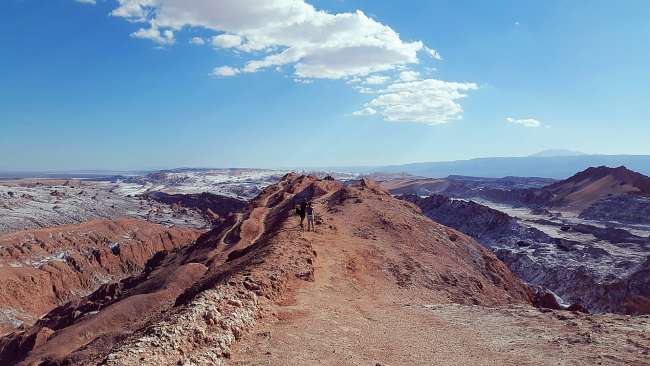
Chile utazási jelentések
